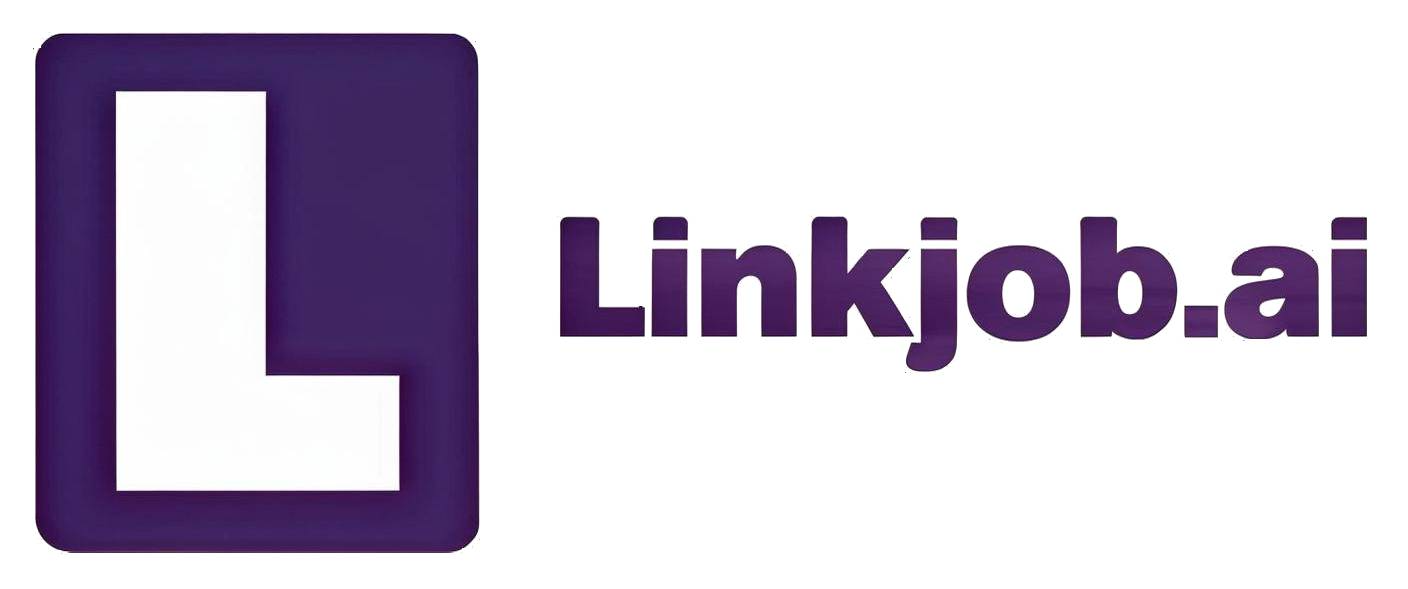I Tested a Bunch of AI Interview Feedback Tools and Found the Real Gem
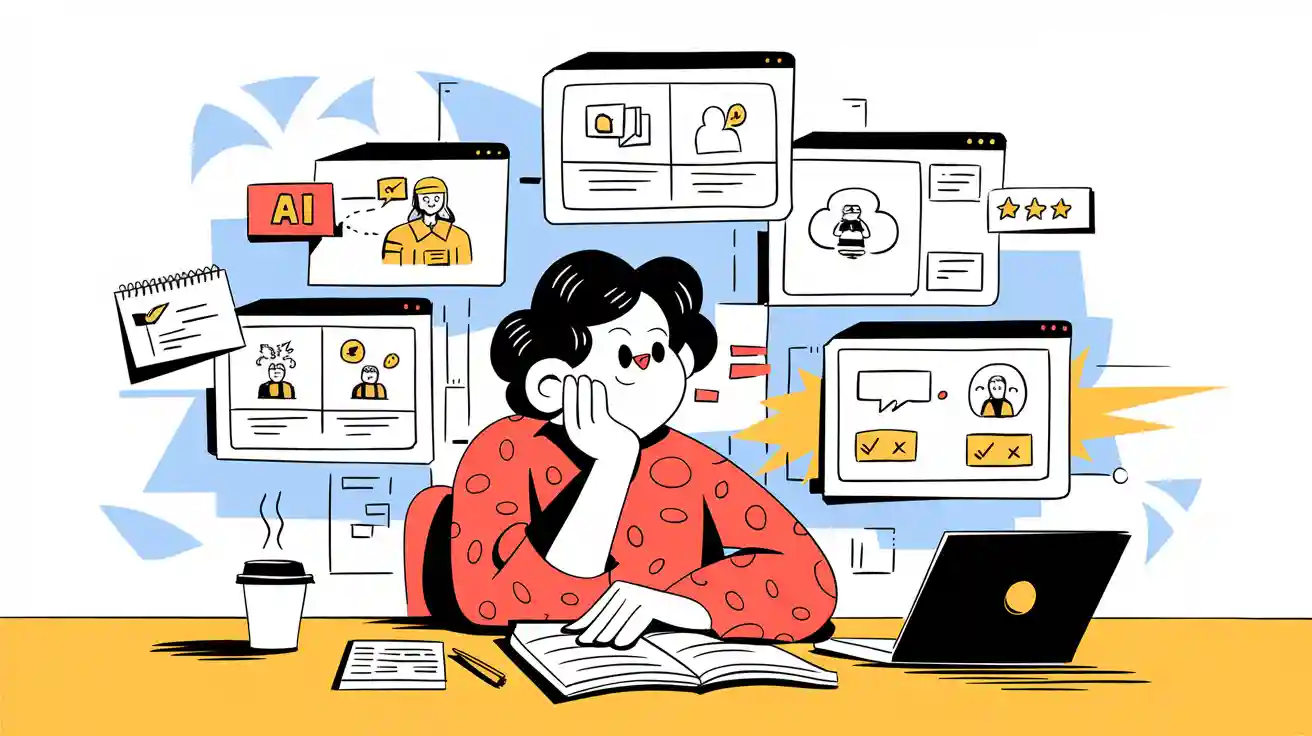
I’ve put dozens of AI interview feedback tools through their paces, hunting for the ones that actually help candidates shine in tough interviews. Real-time support and actionable feedback make a huge difference, especially when nerves kick in or feedback is hard to get. Many candidates struggle with delays, unclear feedback, and unexpected interview questions. I’ve seen firsthand how these AI interview tools can transform the candidate experience by giving real help when it matters most. When the pressure is on, this support feels like a game-changer.
I have to say, Linkjob.ai is really incredibly useful. During the interview process, it's completely invisible—even if the interviewer requires screen sharing, the other party can't see at all that I'm using AI.
Top AI Interview Feedback Tools
Quick Rankings
When I started testing ai interview feedback tools, I wanted to know which ones experts and real users trust most. After digging into reviews and trying them myself, I found a handful that stand out again and again. Here’s a quick look at the most frequently recommended ai feedback tools:
Linkjob
VMock
LeetCode
InterviewBuddy
LinkedIn’s Interview Preparation Tool
AI Interview Coach by Sonru
Interview Simulator by GeeksforGeeks
ChatGPT
Industry experts also highlight platforms like Linkjob, InCruiter, X0PA AI, Eklavvya, Skillspot.ai, SparkHire, and Talently.ai for their advanced ai-driven tools and strong feedback features. These user feedback tools help candidates and recruiters get actionable insights, fair scoring, and a smoother interview experience.
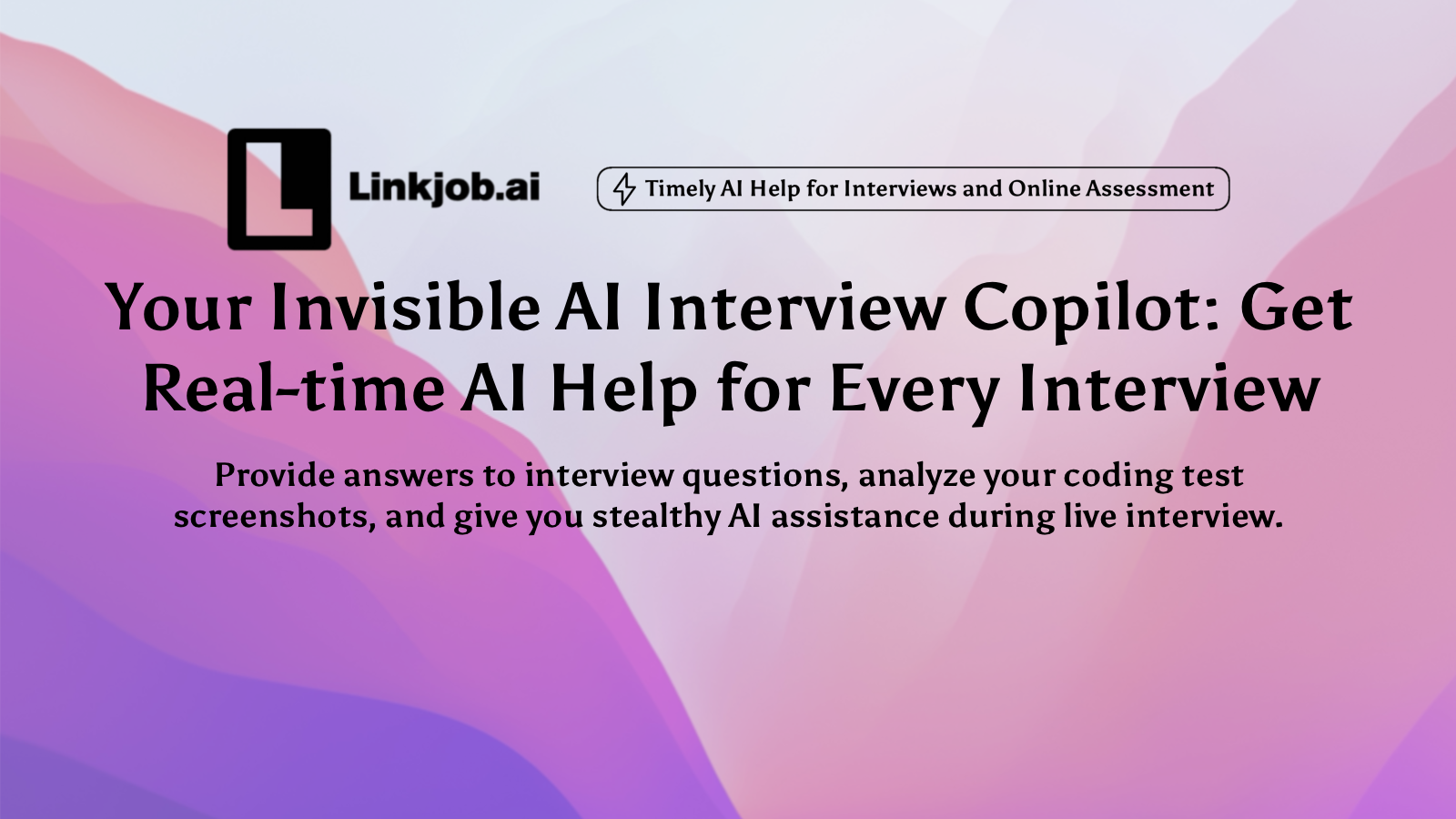
Standout Features
I noticed that the best ai interview feedback tools share some key strengths. Here’s a table that breaks down what users value most in these tools:
Tool Name | Key Features | User Highlights |
|---|---|---|
Linkjob AI | Mock interviews, live transcription, real-time assistant for video and phone interview, coding assistant | Personalization, STAR method, accuracy, low latency, compatibility with platforms, multilingual capabilities |
Final Round AI | Mock interviews, resume builder, coding assistant, live transcription | Realistic scenarios, detailed feedback |
Sensei AI | Fast response, behavioral interview studio, privacy mode, platform integration | Personalization, speed, stealth mode for coding |
Verve AI | Coding assistant, affordable pricing | Easy to use, good for basic practice |
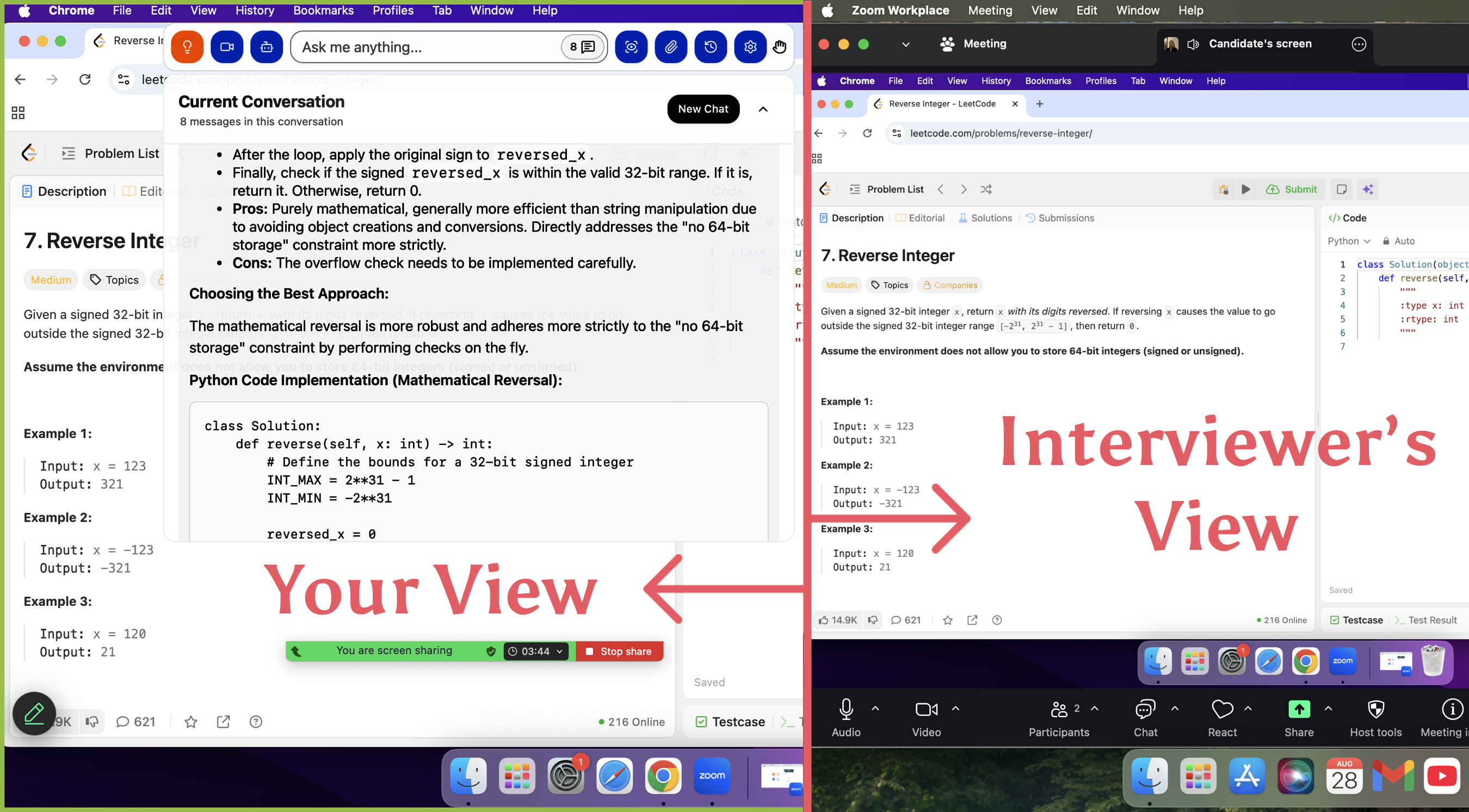
What really matters to me is how these ai feedback tools deliver fast, personalized feedback and real-time suggestions. Tools with strong ai can help you practice, improve your answers, and even support you during live interviews. I found that the best ai interview tools make the whole process less stressful and much more effective.
AI Interview Tools Compared
Linkjob AI
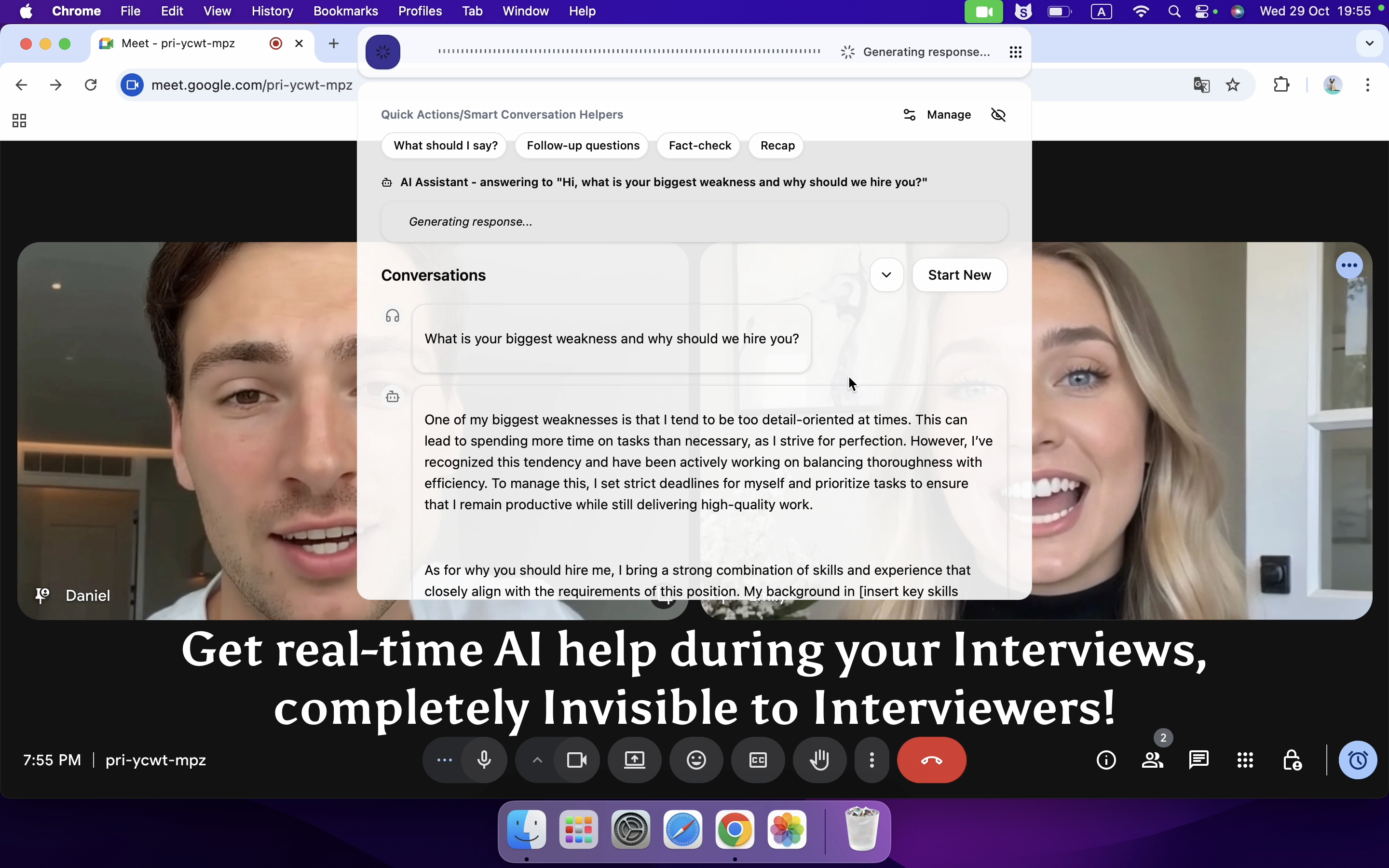
When I tried Linkjob, I noticed how much it changes the game for interviews. During live interviews, the real-time AI assistant listens and offers instant answer suggestions tailored to my CV and the job description, structured using the STAR method. This helps me stay calm and focused, even when I get tough questions. Linkjob’s AI-driven mock interviews feel realistic and give feedback right away. I can upload prep notes and use them as quick reminders. The tool works with Zoom, Teams, and Google Meet, so I never worry about compatibility. It even translates questions in real time, which is great for international interviews. For candidates who want deep, actionable feedback and real-time support, Linkjob stands out among ai interview tools.
Final Round AI
Final Round AI offers a full suite for interview prep. Its Interview Copilot gives real-time coaching and feedback during practice. I like how it creates mock interviews that match real job descriptions. After each session, I get detailed performance metrics and see my strengths and weaknesses. The platform also helps with resume and LinkedIn optimization. What sets it apart is the focus on transparency. Many candidates say it boosts their confidence. The feedback is always specific and actionable, not just generic advice.
Interview Coach by Richard McMunn
Interview Coach by Richard McMunn focuses on structured interview practice. It provides video lessons, sample answers, and feedback on common interview questions. I find the assessments helpful for building confidence. The tool is easy to use and gives clear, step-by-step guidance. While it doesn’t offer real-time ai support, it’s a solid choice for candidates who want to improve their answers and understand what hiring managers look for.
Interview Sidekick
Interview Sidekick shines when it comes to live interview practice. The ai assistant gives instant support and feedback during interviews. I can practice with real questions, filtered by company and job type. The tool analyzes my coding answers and gives syntax-highlighted solutions. It also provides real-time transcripts and saves them for review. I like how it adapts to my style. This makes it a strong pick for candidates who want dynamic ai-led video interviews and instant assessments.
Teal InterviewAI
Teal InterviewAI fits right into my job search workflow. It generates interview questions based on my saved jobs and resume. I can practice behavioral and technical questions with no limits. The tool tracks my performance and adapts to my experience level. It helps me structure answers. I also use its job application tracker to organize notes and prep. While it doesn’t analyze my speech, it gives targeted feedback and helps me prepare for both behavioral and technical interviews.
Yoodli
Yoodli focuses on communication skills. It gives real-time feedback on my speech, pacing, and filler words. After each session, I get suggestions to improve my confidence and delivery. The feedback is clear and helps me spot habits that might hurt my performance. While it doesn’t offer interactive feedback, it’s great for candidates who want to polish their speaking skills and leave a strong impression in ai-scored interviews.
Real-Time AI Support
Mock Interviews
When I started using AI interview feedback tools, I realized how much real-time support changes the way I prepare for interviews. Mock interviews with AI give me the chance to practice anytime, day or night. I don’t have to wait for a coach or friend to be free. These tools simulate real interviewers and ask questions that match the jobs I want. Linkjob stands out here. It creates realistic interview scenarios, listens to my answers, and gives instant feedback. I see right away where I need to improve. The feedback covers my confidence, delivery, and how well I answer the question.
I noticed that AI tools like Linkjob also analyze my non-verbal cues, such as eye contact and posture. This helps me work on my communication skills, not just my answers. I feel less nervous because I can repeat the practice as many times as I want. The feedback is always there, and I can track my progress over time.
Live Interview Assistance
The real test comes during the actual interview. Sometimes, I get a question I’ve never seen before or my mind goes blank. This is where real-time AI support makes a huge difference. Linkjob’s Real-Time AI Interview Assistant listens to the conversation, detects the interviewer’s question, and gives me smart, context-aware answer suggestions. It uses my resume and the job description to make sure the feedback fits my background.
Other tools offer live feedback too, but Linkjob’s instant suggestions feel more targeted, especially for tough tech and finance interviews. I get help with structuring my answers, avoiding mistakes, and staying calm under pressure. Studies show that real-time AI support improves interview outcomes. The feedback I get during the interview helps me stay focused and perform at my best.
Solving Common Interview Pain Points
Overcoming Nervousness
Nervousness hits almost every candidate before interviews. I know that feeling well. When I started using ai interview feedback tools, I noticed my anxiety drop. Practicing with ai-powered mock interviews gave me a safe space to make mistakes and learn. These tools let me repeat tough questions as many times as I needed. I got instant feedback on my delivery, which helped me spot filler words and improve my confidence. The best part? I could practice anytime, so I never felt rushed or unprepared. Real-time feedback during live interviews also helped me stay calm and focused, even when things got tricky.
Improving Answers
Getting better at interviews means improving answers with every attempt. I found that ai tools give detailed, personalized feedback that goes beyond generic tips. For example, after a session, I could see exactly where my answers needed more structure or detail. Studies show that candidates who use ai-driven feedback more than double their use of open-ended questions, which makes answers stronger and more reliable. I saw my own answers become clearer and more persuasive after just a few sessions. The tools tracked my progress and suggested ways to refine my approach, making each interview feel easier than the last.
Handling Unexpected Questions
Curveball questions used to throw me off. Now, ai interview feedback tools help me prepare for the unexpected. These tools simulate real interviews and throw in tricky questions, so I learn to think on my feet. Some platforms even offer a “Question of the Day” to keep me sharp. Practicing with ai tools helped me understand the purpose behind tough questions and build my problem-solving skills. During live interviews, real-time ai support gave me hints and answer suggestions, so I never felt stuck. This made me much more adaptable and confident, no matter what came my way.
AI Interview Tools for Different Users
For Candidates with Specific Industry Needs (e.g., Tech, Finance)
When I prepare for tech or finance interviews, I look for ai tools that really understand those industries. Linkjob stands out for me. It gives deep, real-time support for coding, algorithms, system design, and finance case studies. The ai assistant listens during interviews and offers instant answer suggestions. This makes a huge difference in high-stakes hiring. I also like that Linkjob’s assessments match the standards of top companies. Linkjob also provides technical assessments for other industries, complete with explainable reasoning and support for multiple languages. These features help candidates show both hard and soft skills.
For Recent Graduates
I remember how stressful job hunting felt right after graduation. Most candidates feel the same. Many ai tools help reduce anxiety by organizing the job search and providing mock interviews with real-time feedback. Here’s what I found most helpful:
Centralized tracking and automated reminders keep me on top of applications.
Mock interviews and role-playing build my confidence.
Custom resume and cover letter generation save time.
Platforms like Final Round AI support the whole process, from applications to interview prep. These tools help candidates improve the overall experience. However, the downside is that they may not excel at every step of the process. Still, they can save time for candidates who prefer a more convenient approach.
For Career Changers
Switching careers can feel overwhelming. I’ve seen ai tools make this easier by tailoring resumes and job recommendations for new fields. I can input job descriptions and get real-time, industry-specific interview guidance. Resume builders and cover letter generators highlight my transferable skills. During interviews, ai support gives me instant, personalized answers. Many candidates say these tools boost their confidence and help them succeed in unfamiliar industries. Discreet ai interview buddies even let me get support without the interviewer noticing.
For Other Candidate Types
Some candidates have unique backgrounds or special needs. I’ve noticed that ai tools like TurboHire and VidCruiter offer scalable solutions for campus hiring or regulated industries. Willo and myInterview provide accessible video interviewing for candidates on a budget. They help create a fair candidate experience and give everyone a chance to shine.
Choosing the Right AI Interview Feedback Tool
Key Selection Criteria
When I look for the best AI interview feedback tool, I focus on what really matters for my success. I want a tool that gives me instant, actionable feedback and helps me feel confident during interviews. Here are the main things I check before making a choice:
Real-time support: I need AI that listens and responds during both practice and live interviews.
Industry focus: Some tools work better for tech or finance, while others are more general. I always pick one that matches my field.
Integration: I like tools that connect with my favorite platforms, like Zoom or ATS, so my workflow stays smooth.
User experience: If the tool feels easy to use and gives clear feedback, I stick with it.
Budget: I compare the value I get with the price. Sometimes, free tools offer great features, but paid options can give deeper insights.
Skill assessments: I want comprehensive assessments that cover technical, communication, and soft skills.
Customization: The best tools let me tailor questions and feedback to my needs.
Security and privacy: I make sure my data stays safe and the tool explains how it uses AI.
I also pay attention to features like AI-generated interview questions, resume matching, and cheat-proof proctoring. These help me prepare for real-world hiring situations and keep the process fair.
Matching Features to Needs
Everyone’s interview journey looks different, so I always match tool features to my personal goals. For example, I upload my resume and job description to get personalized questions and feedback. If I want to improve my speaking, I use AI with speech analysis. When I need to practice technical interviews, I choose tools with coding simulations and real-time feedback.
Here’s a quick table I use to compare features:
Feature | Why I Use It |
|---|---|
Resume/job matching | Personalized questions and feedback |
Real-time feedback | Instant improvement during practice/live |
Skill assessments | Measure technical and soft skills |
Language support | Practice for global hiring opportunities |
Customization | Focus on my weak spots |
Peer interaction | Get feedback from others and learn together |
I also look for platforms that help with data-driven hiring decisions. Metrics like time-to-hire, candidate drop-off rates, and quality of hire show me if the AI tool really works. By matching these features to my needs, I make sure I get the most out of every interview and feel ready for any challenge.
After testing so many AI interview tools, I saw how real-time feedback can change everything. Tools like Linkjob give instant feedback during both practice and live interviews, helping me stay calm and focused. I noticed that feedback on pacing, confidence, and answer quality made my responses stronger. Linkjob’s real-time assistant gave me feedback that felt personal and smart, especially in tech and finance interviews. If you want to boost your interview skills, choose a tool that gives you the right feedback when you need it most.
FAQ
How do AI interview feedback tools help with live interviews?
I use AI tools like Linkjob during real interviews. The AI listens, understands the questions, and gives me instant answer suggestions. This support helps me stay calm and focused, even when I get tough or unexpected questions.
Can I use these tools for any industry?
Most tools work for many fields. I find Linkjob especially strong for tech and finance interviews. It knows the language and standards of those industries. Some tools also offer general support for other jobs.
Do I need special equipment to use AI interview tools?
No, I just need a computer or phone with internet. Most tools work in my browser or as an app. Some connect with Zoom or Teams, so I can use them during video calls.
Is my data safe with these platforms?
I always check the privacy policy before I sign up. Most top tools, like Linkjob, use strong security to protect my data. I make sure my information stays private and safe.

